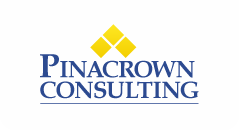At Pinacrown Consulting, we’re in the thick of tax return season, working long hours to get every one of our client’s self-assessment paperwork in on time.
But for us, it’s not just about ticking the boxes and calling it a day. It’s about doing every tax return thoughtfully and in as much detail as possible so our clients receive the best tax treatment.
That’s what sets our self-assessment tax return service apart from some other accountants out there who focus on quantity of clients, not quality.
But, frankly, our approach should be the norm in our line of work. After all, our job as accountants and financial experts is to increase your personal or business’s value.
So, how can you make sure your accountant is doing a good job with your tax return and in a way that will actually benefit you?
Well, you could start by asking yourself the following questions.
Is your accountant proactive?
If you read any guide to doing your self-assessment tax return, one of the most common pieces of advice you’ll see is to get yours started as soon as you can.
Your accountant should be proactive and do the exact same thing.
We prefer to get our clients’ tax returns completed as soon as possible for a number of reasons.
First, it significantly reduces the risk of a mistake going by unnoticed.
If one does go by unnoticed, it could be damaging to you if that mistake gets you in trouble with HMRC or ends up with you paying too much in tax.
In short, the sooner we start, the less we have to rush and the more time we have to check over our work.
Although it’s rare for an accountant to miss the deadline to file your tax return, being proactive means a good accountant will turn it from rare to impossible to miss it, ensuring you never pay a late fee ever again.
And, because the filing deadline is the same as the tax payment deadline – 31 January – a proactive accountant will have your tax return completed as soon as possible so you can properly budget for your tax bill.
Do they focus on expenses calculations?
A proactive accountant will also have more time to spend on claiming all of your allowable expenses on your tax return.
Allowable expenses are purchases you make “wholly and exclusively” for business purposes. Office stationery, a tradesman’s tools and a work laptop all count as allowable expenses.
If you’re serious about your business’s finances, you need an accountant who will dedicate a sizable portion of their time and attention to your allowable expenses.
That’s because the value of your allowable expenses can be deducted from your business profits, which means your tax bill itself will be smaller.
But allowable expenses can be a bit more complicated than we’ve let on so far – some expenses can be ‘dual purpose’ in which a portion of the cost incurred for business purposes can be claimed. Other expenses, like using a home office or travel expenses can be worked out through different methods.
Any good accountant will thoroughly investigate these issues in detail to get you the best tax treatment.
Do you hear from them only once a year?
If you do, it’s not a good sign.
After all, there are a number of dates and deadlines you need to follow, and if your accountant is not taking the time to remind you of them, can you be sure they have you in mind as an individual when they do your tax return?
In case your accountant hasn’t let you know about these deadlines, here’s a quick rundown:
- 5 October: register for self-assessment
- 31 October: deadline for paper tax returns
- 31 January: deadline for online tax returns
- 31 January: pay the tax you owe.
If you’re looking to change accountants, Pinacrown will work perfectly for you.
Talk to us about your self-assessment tax return.
